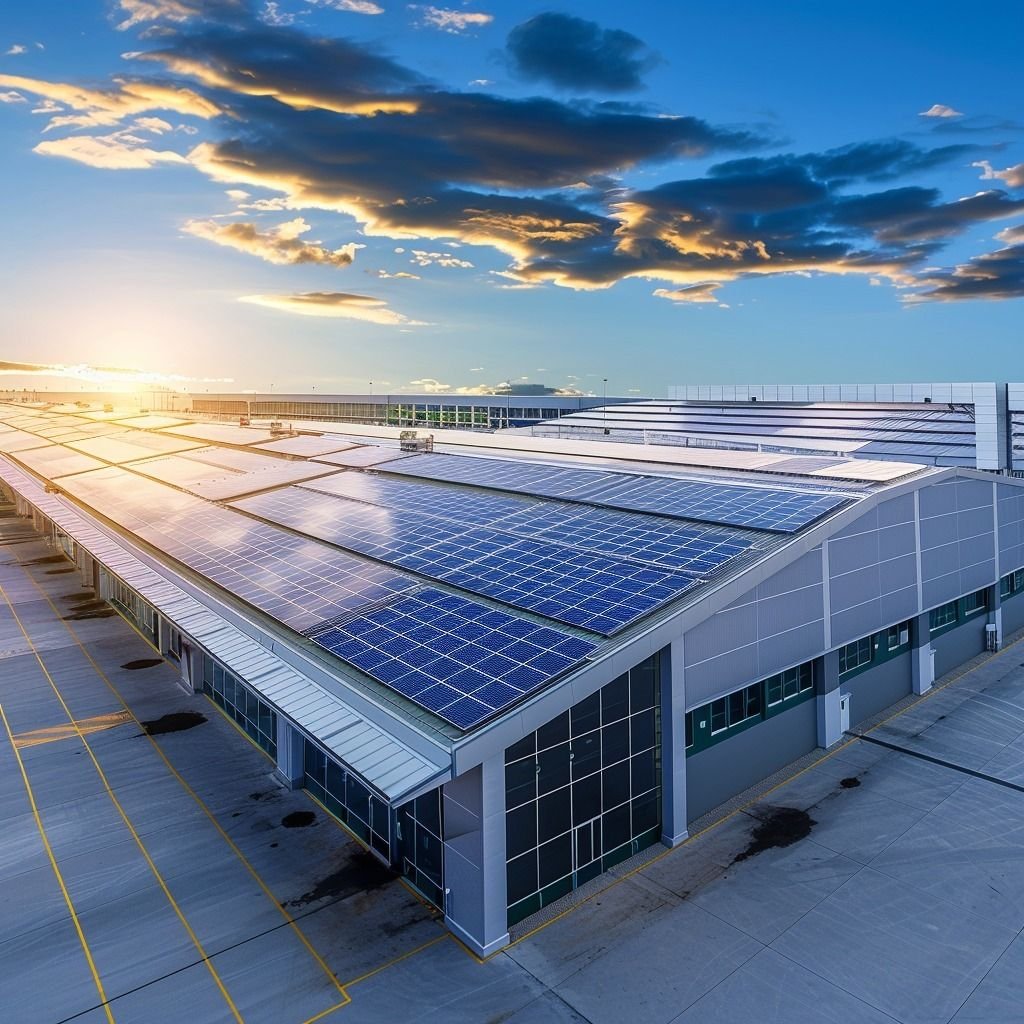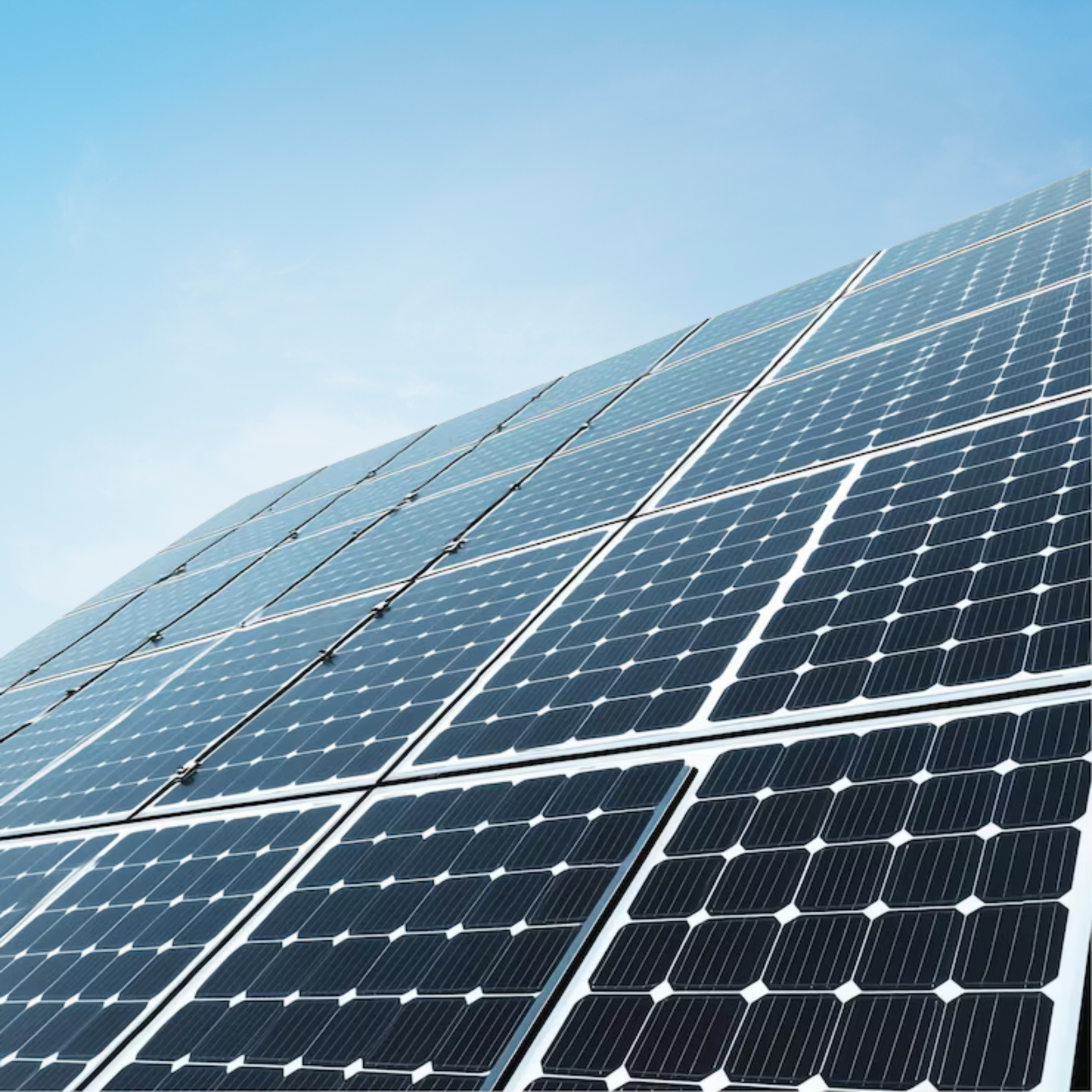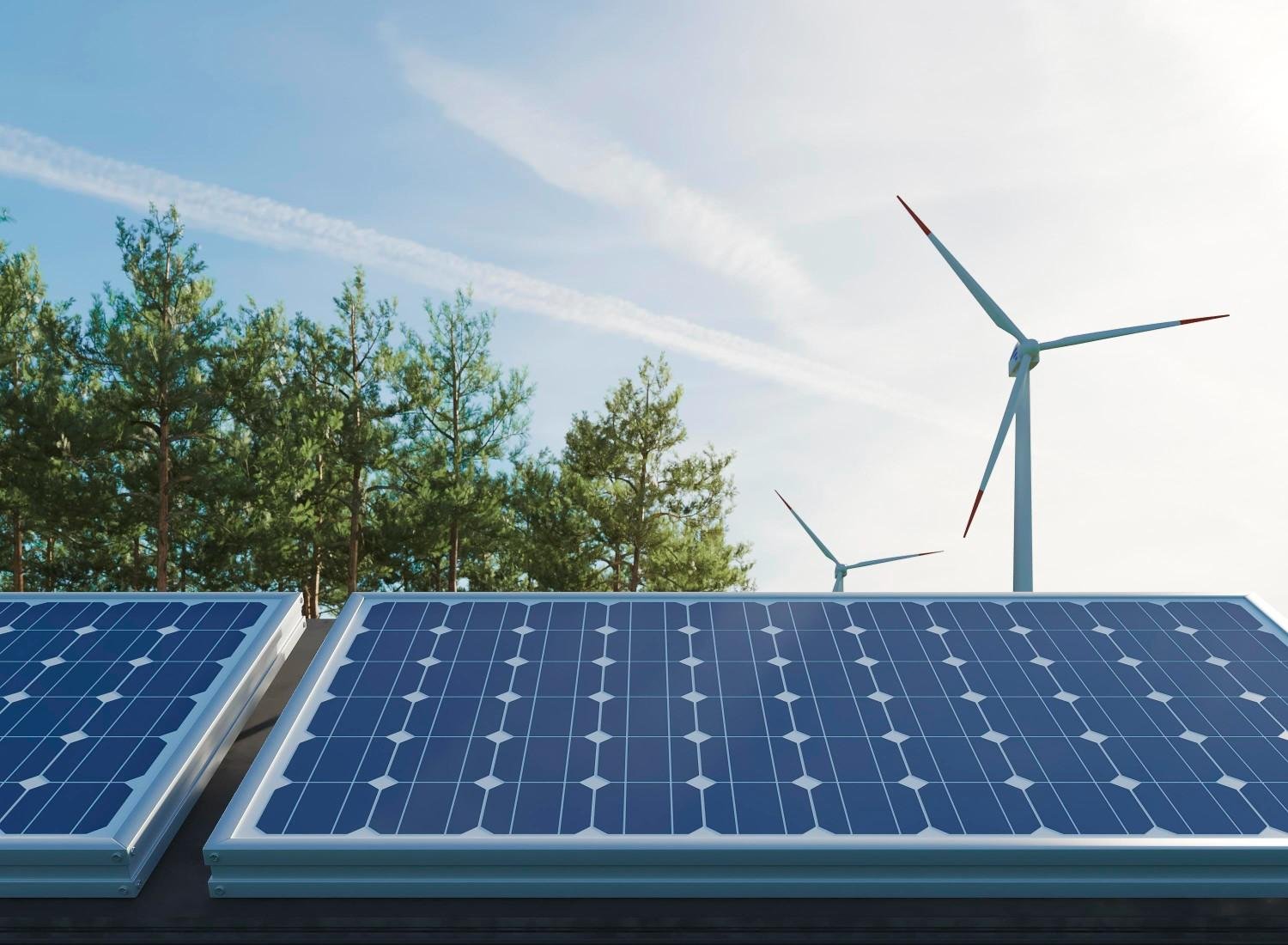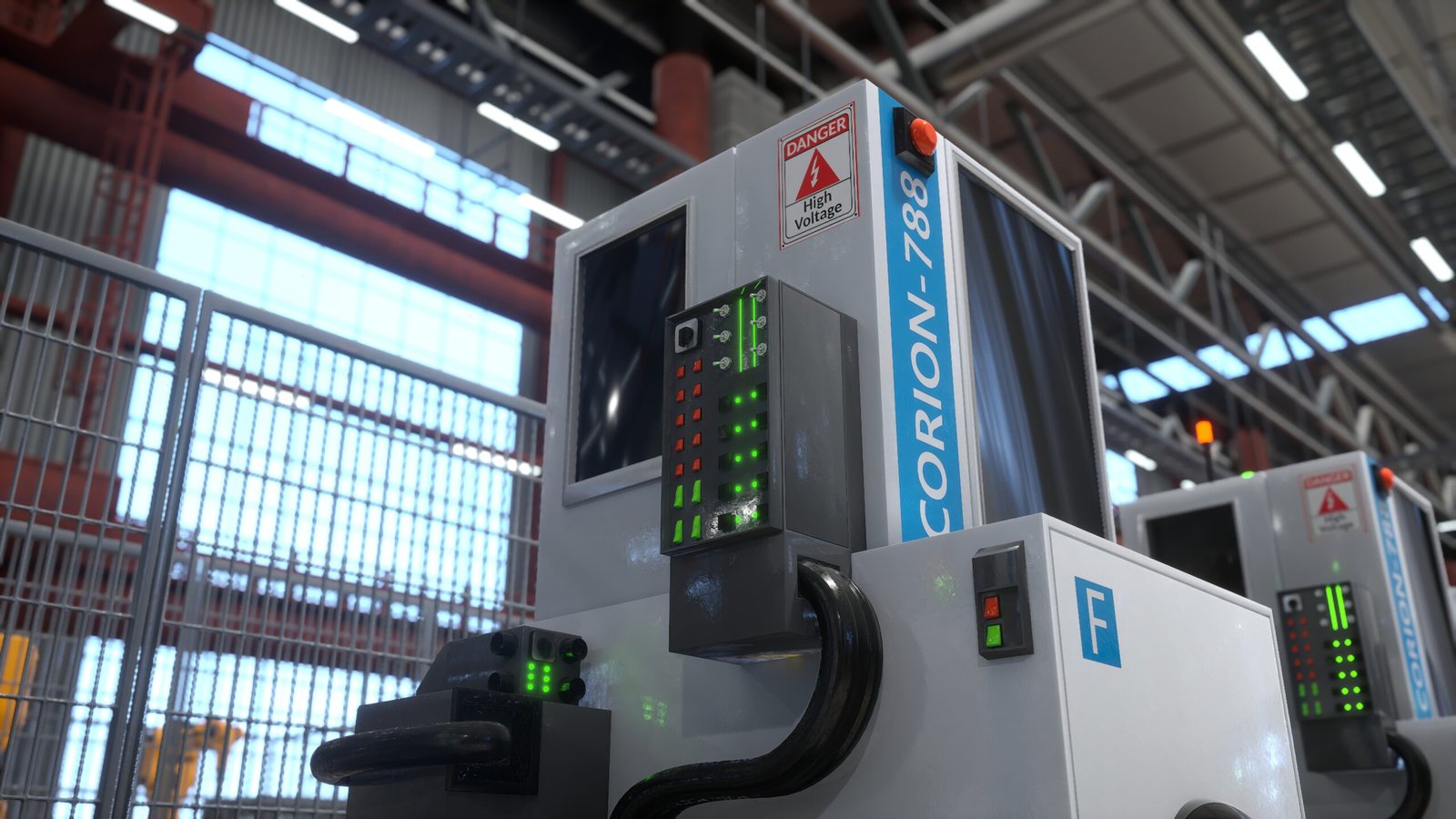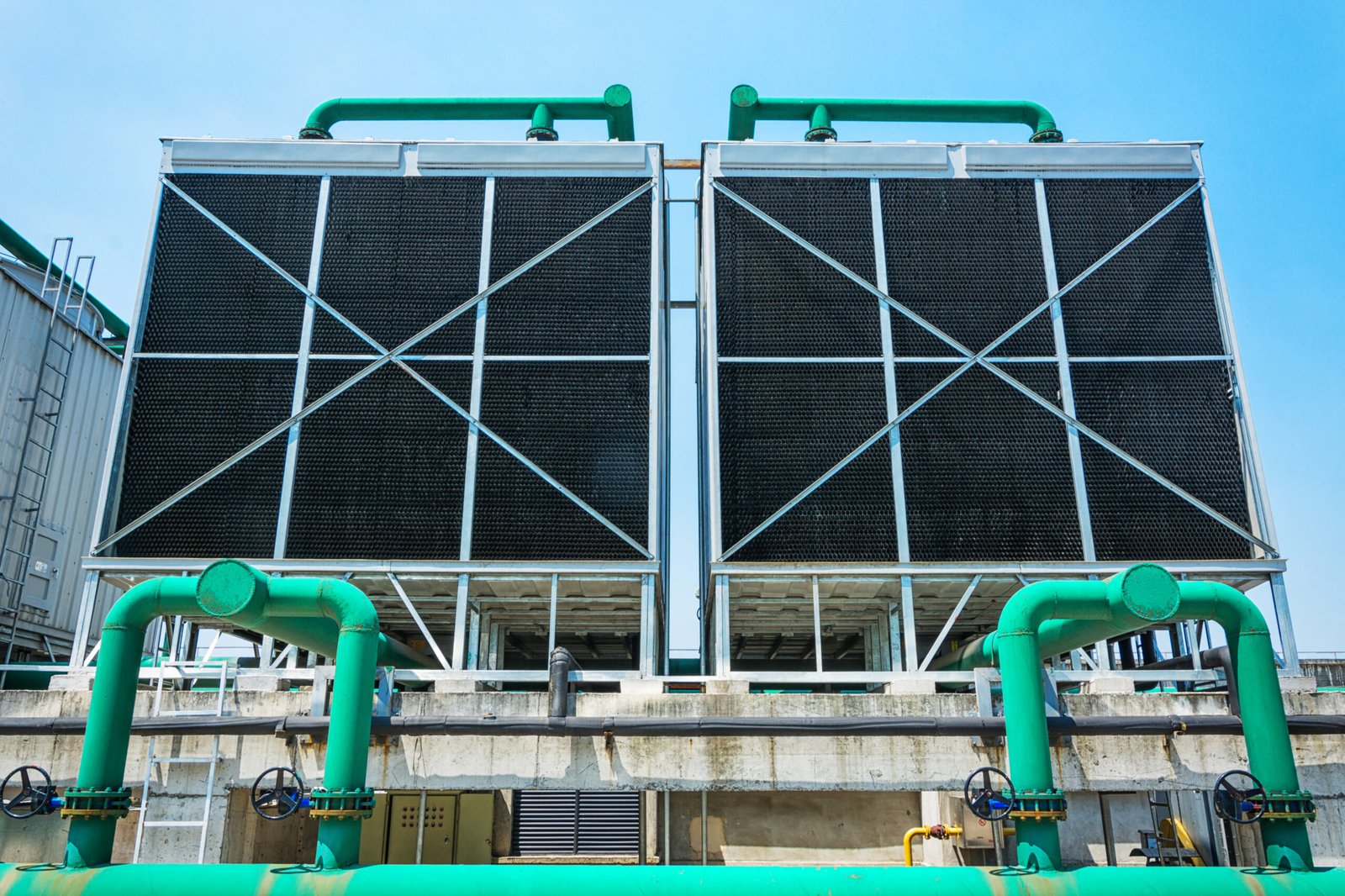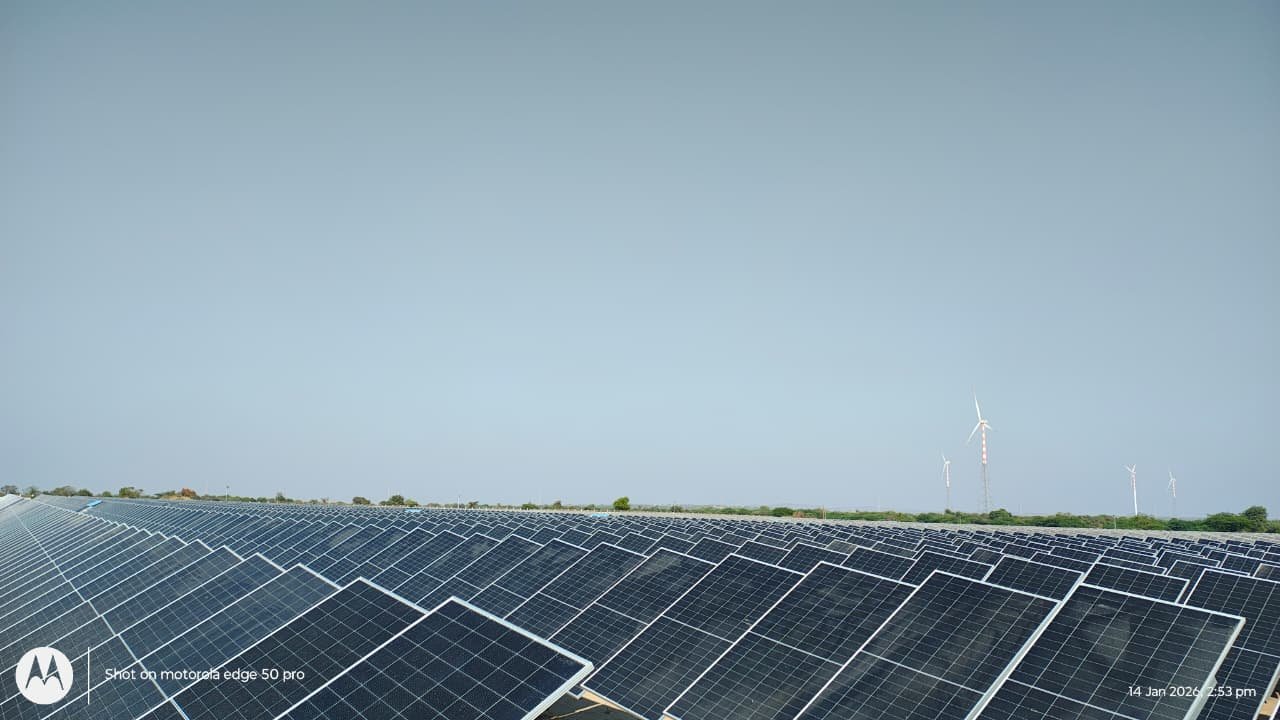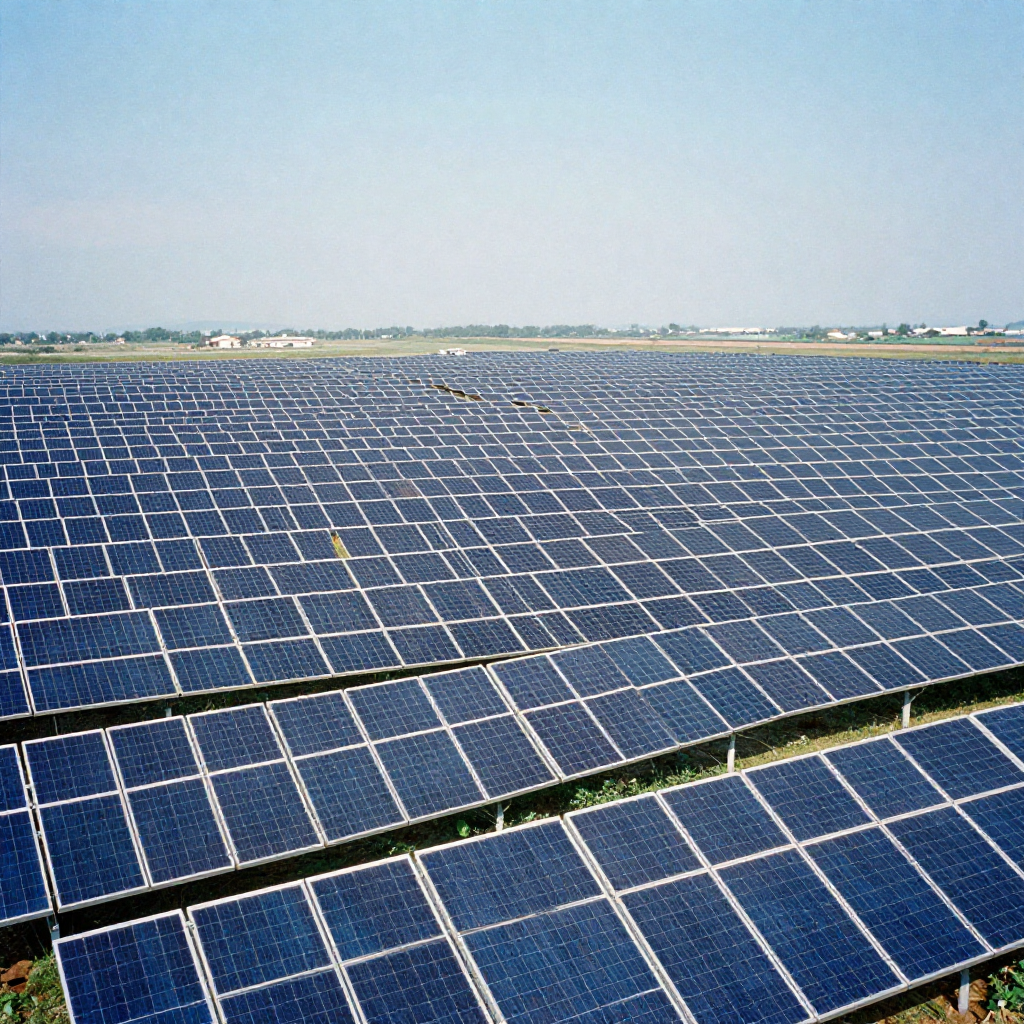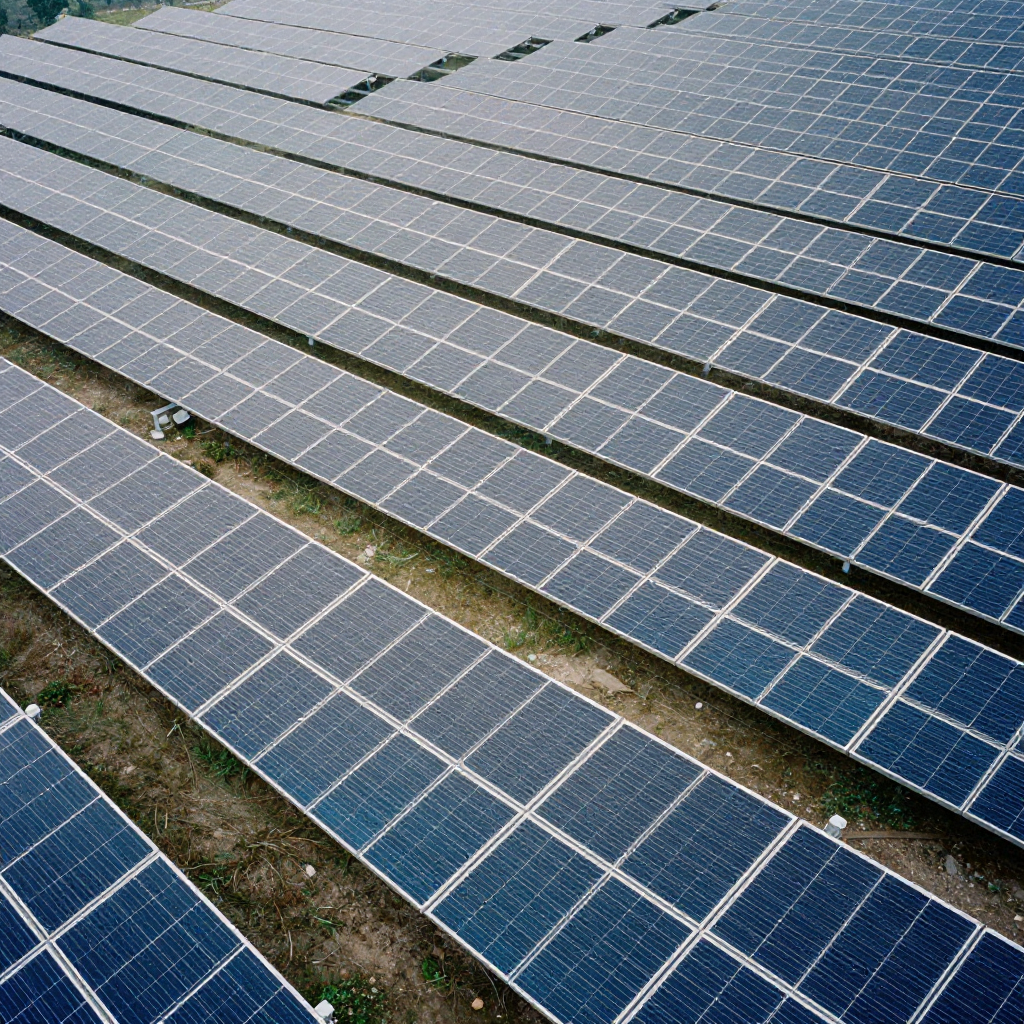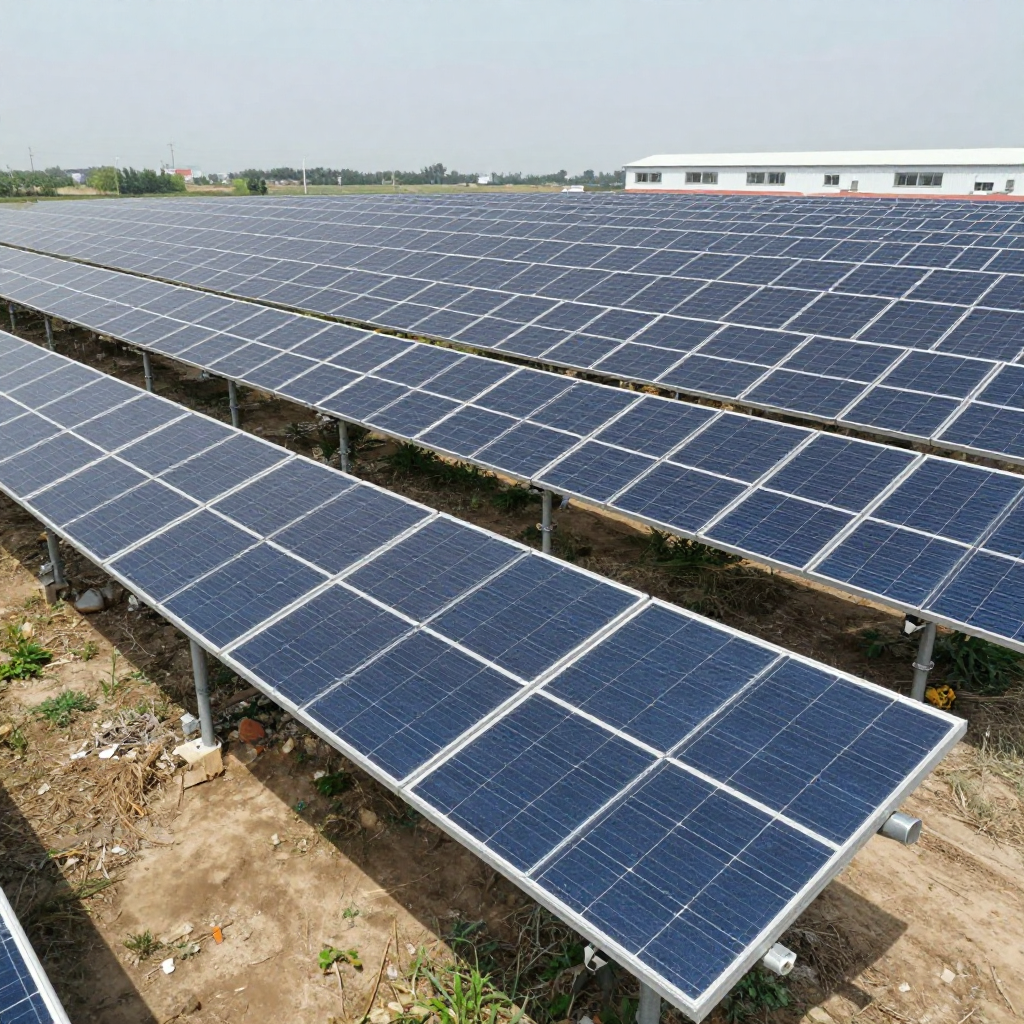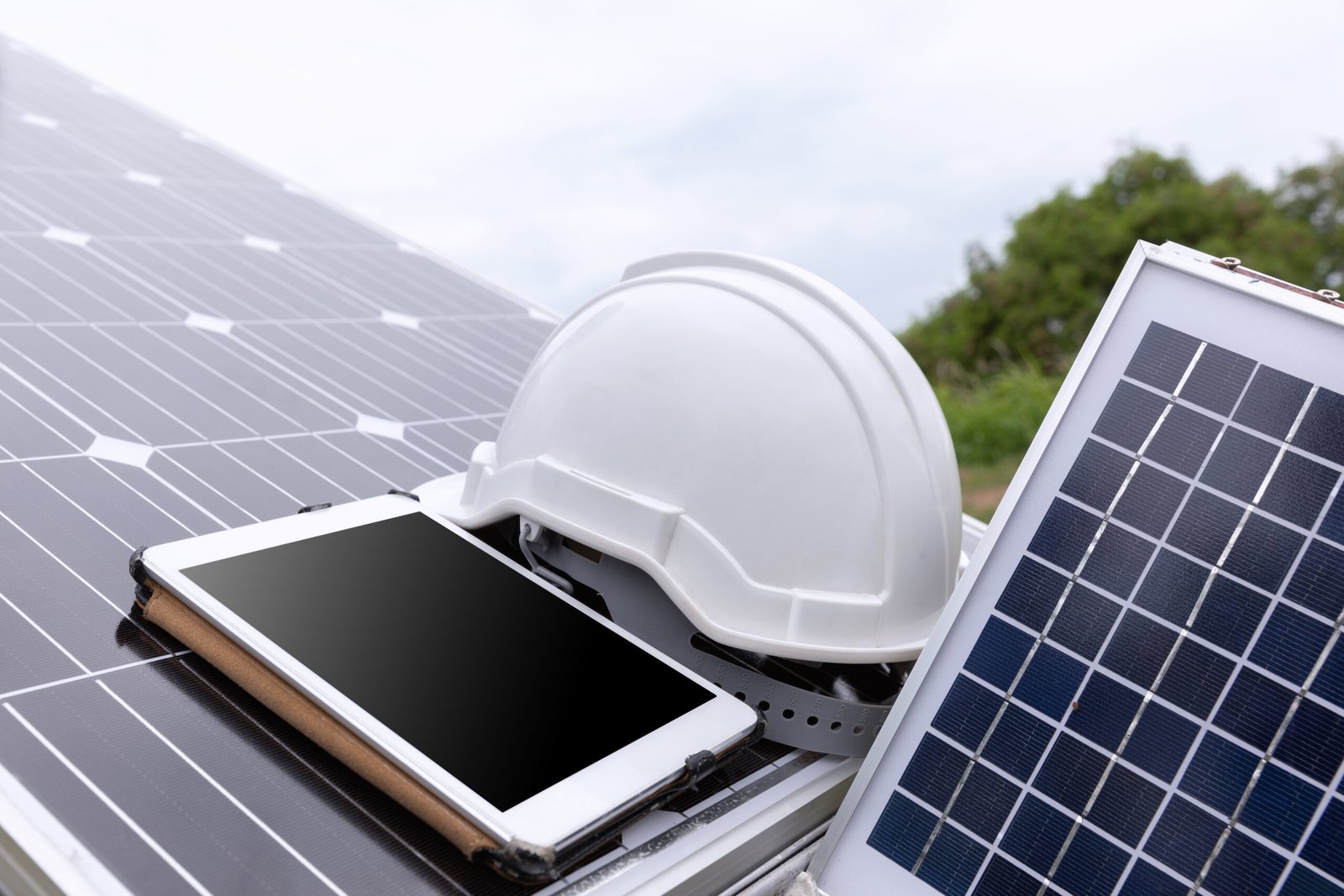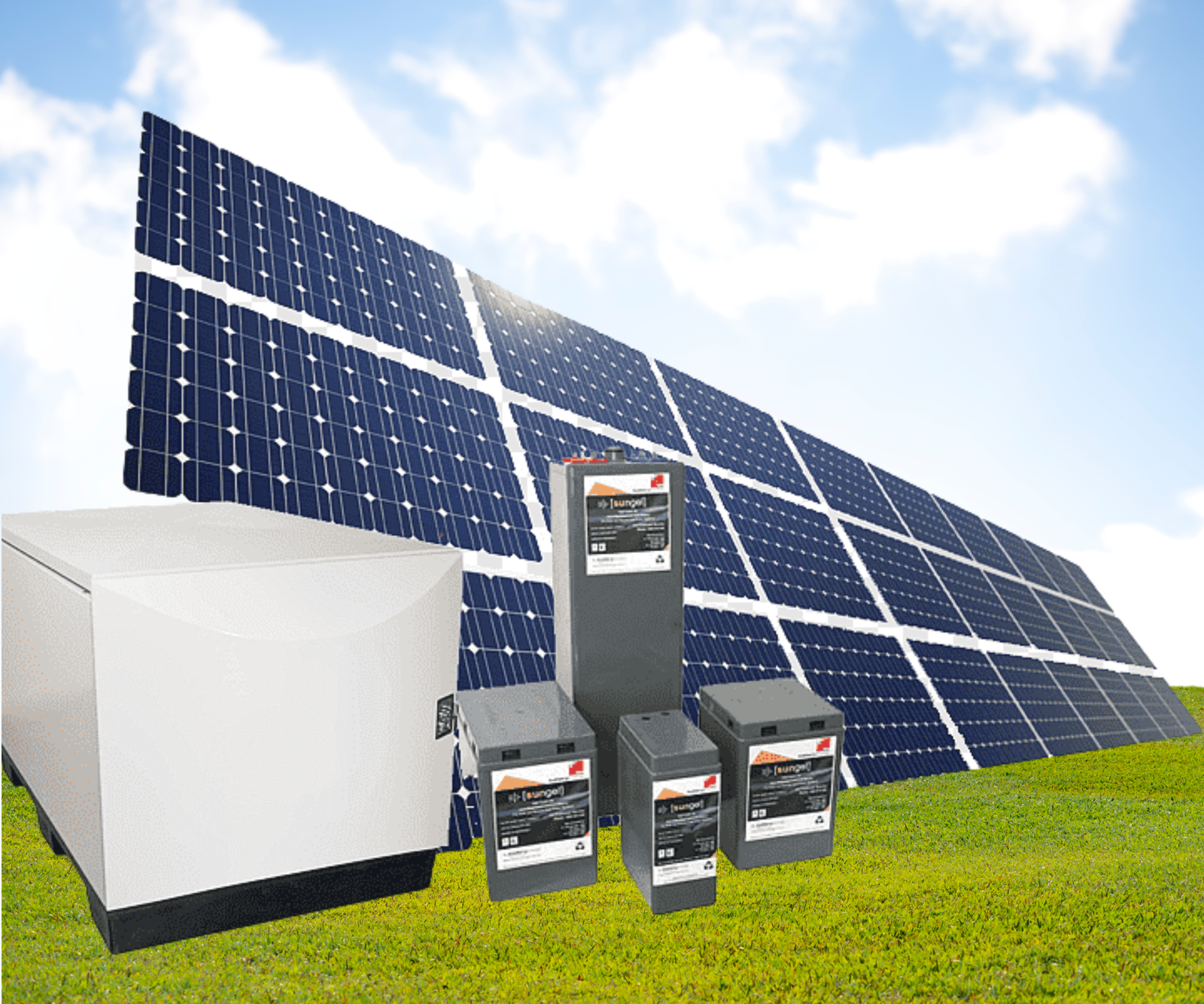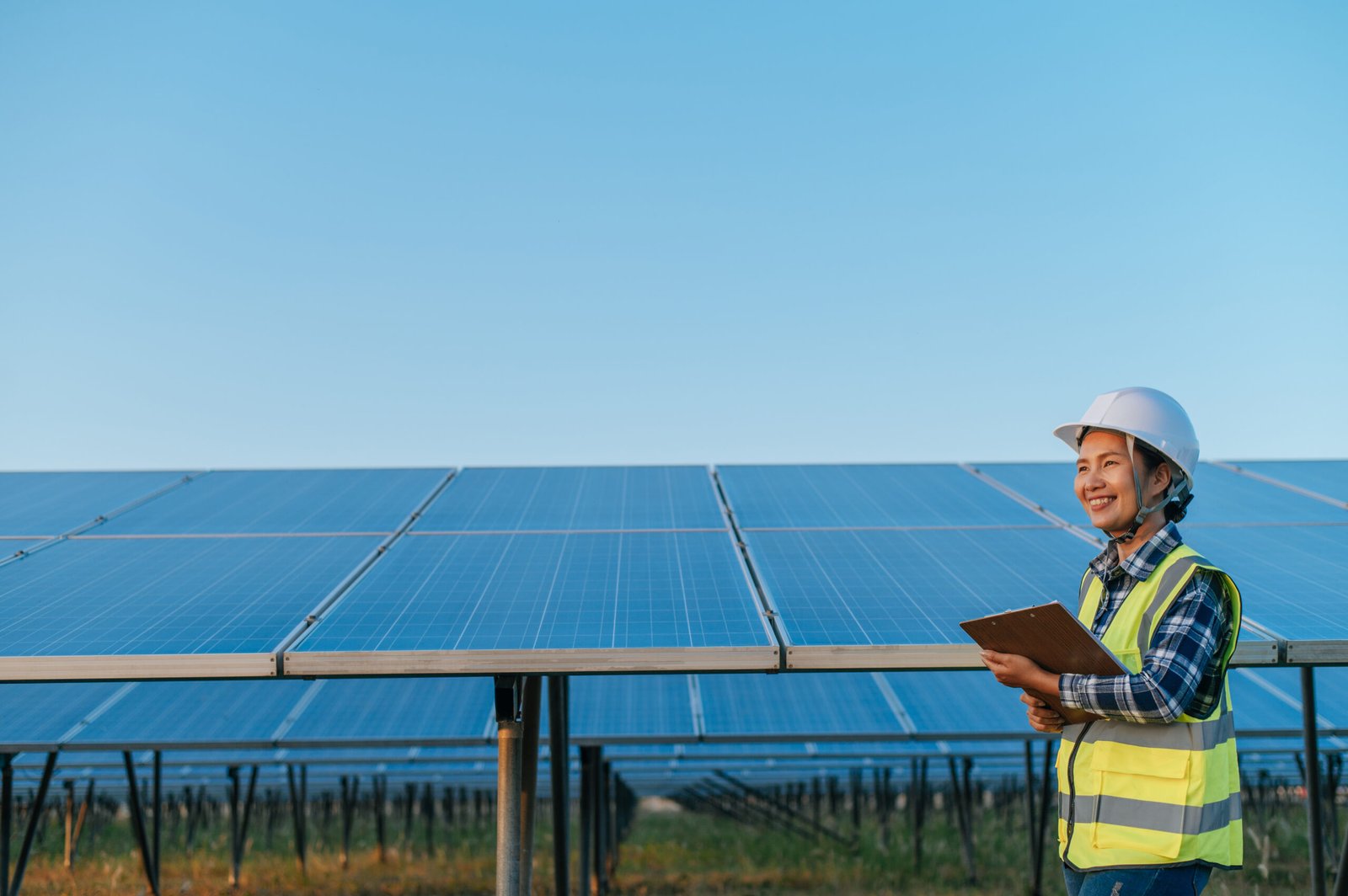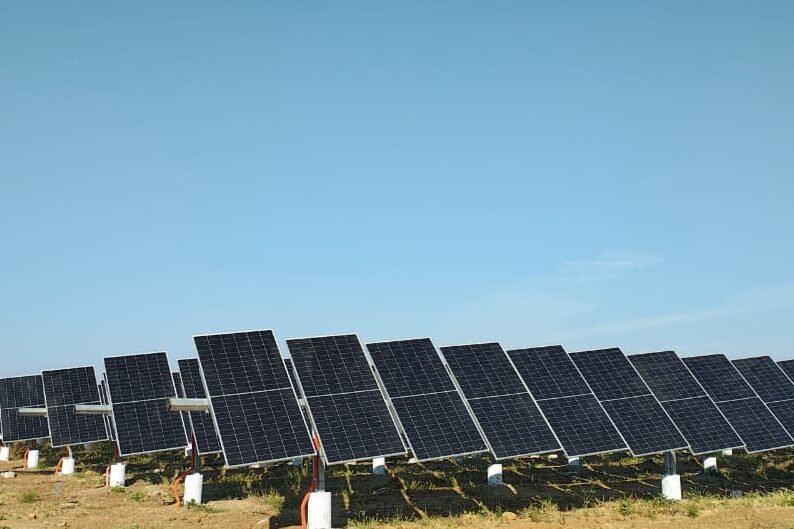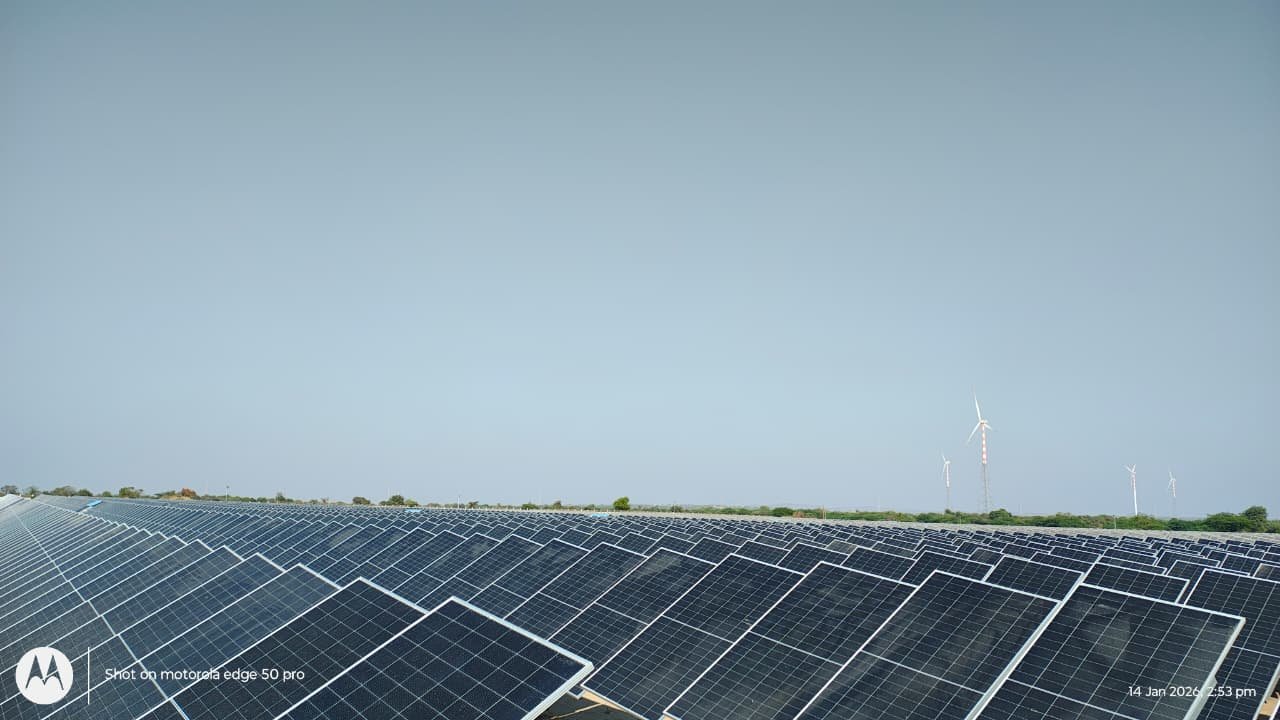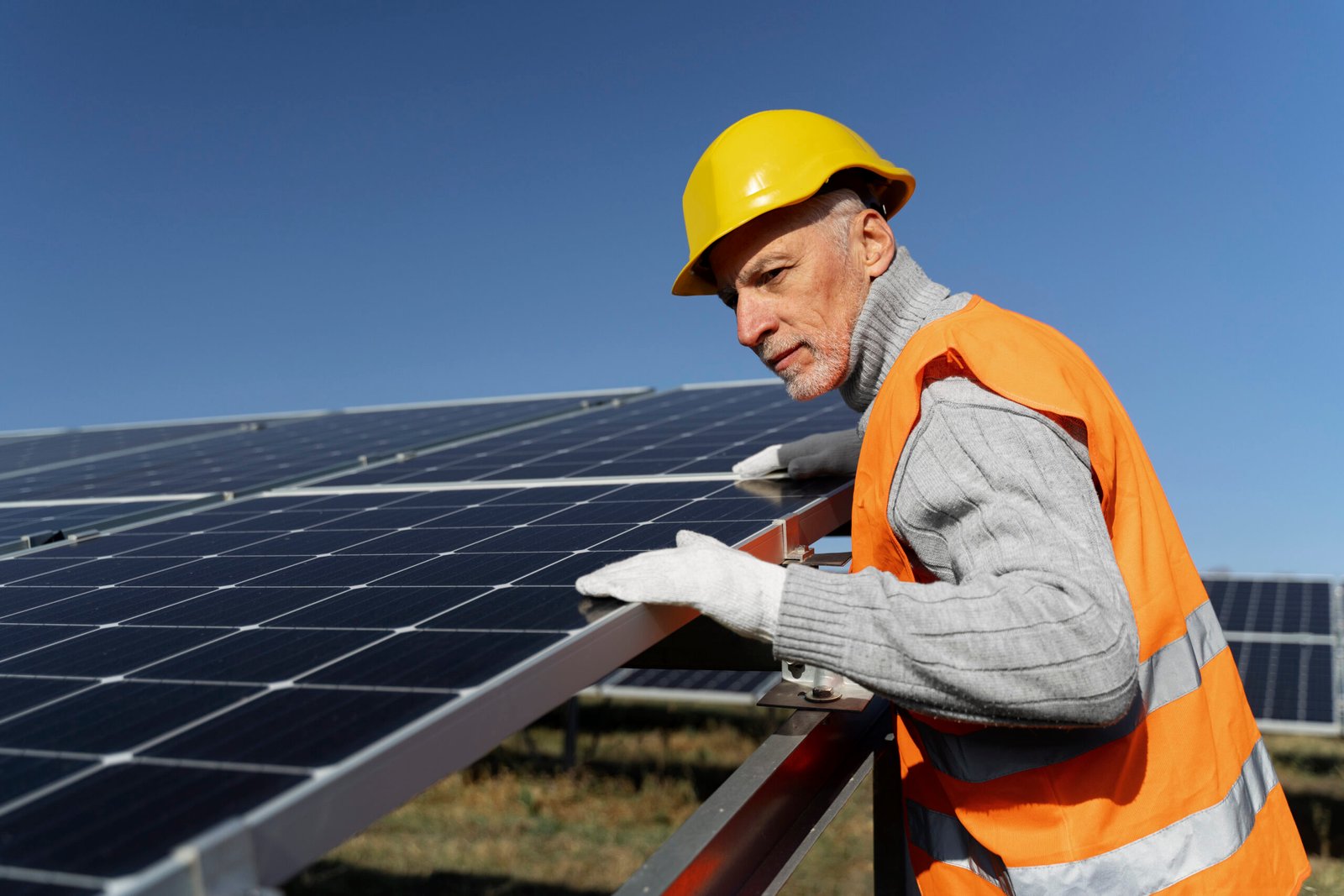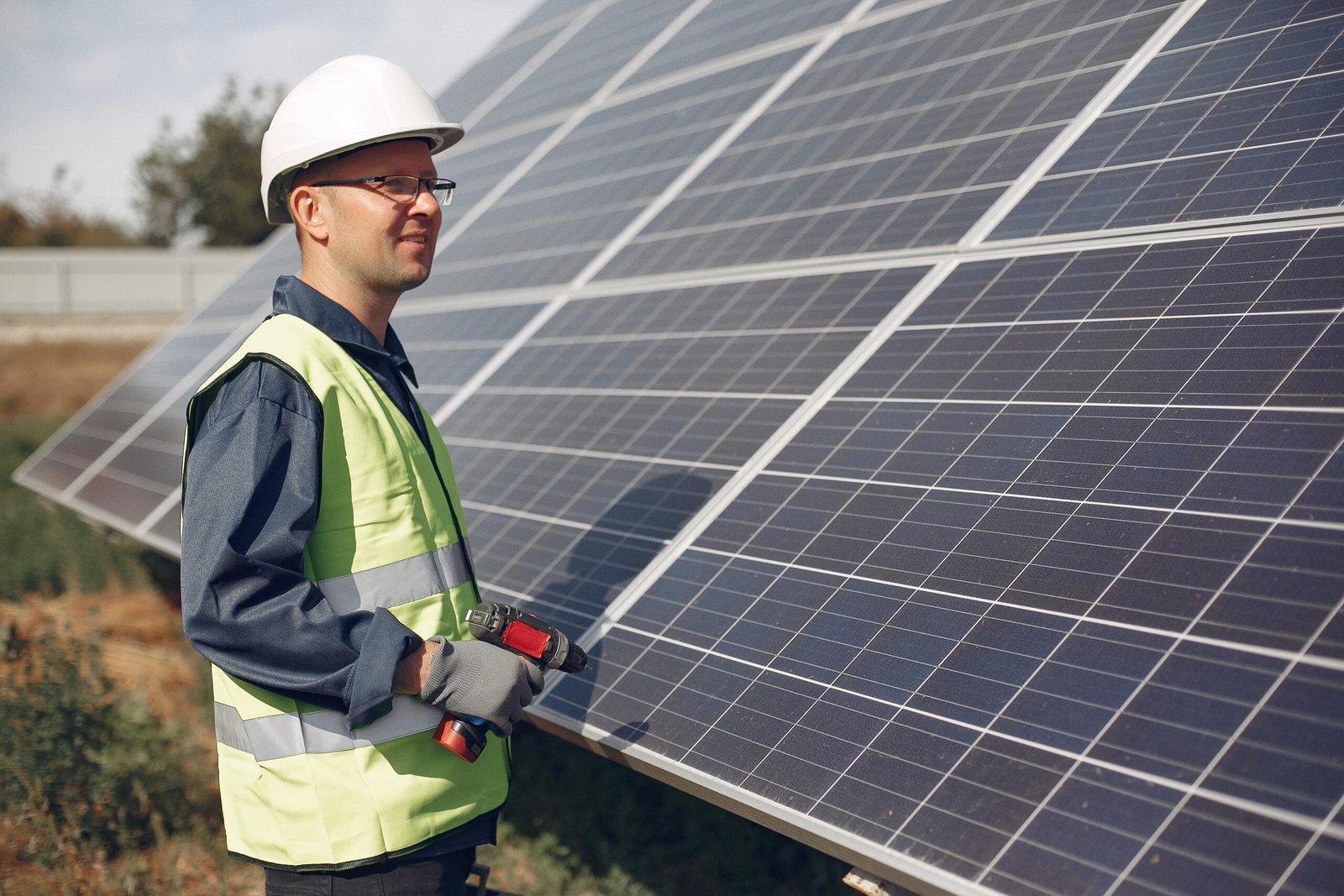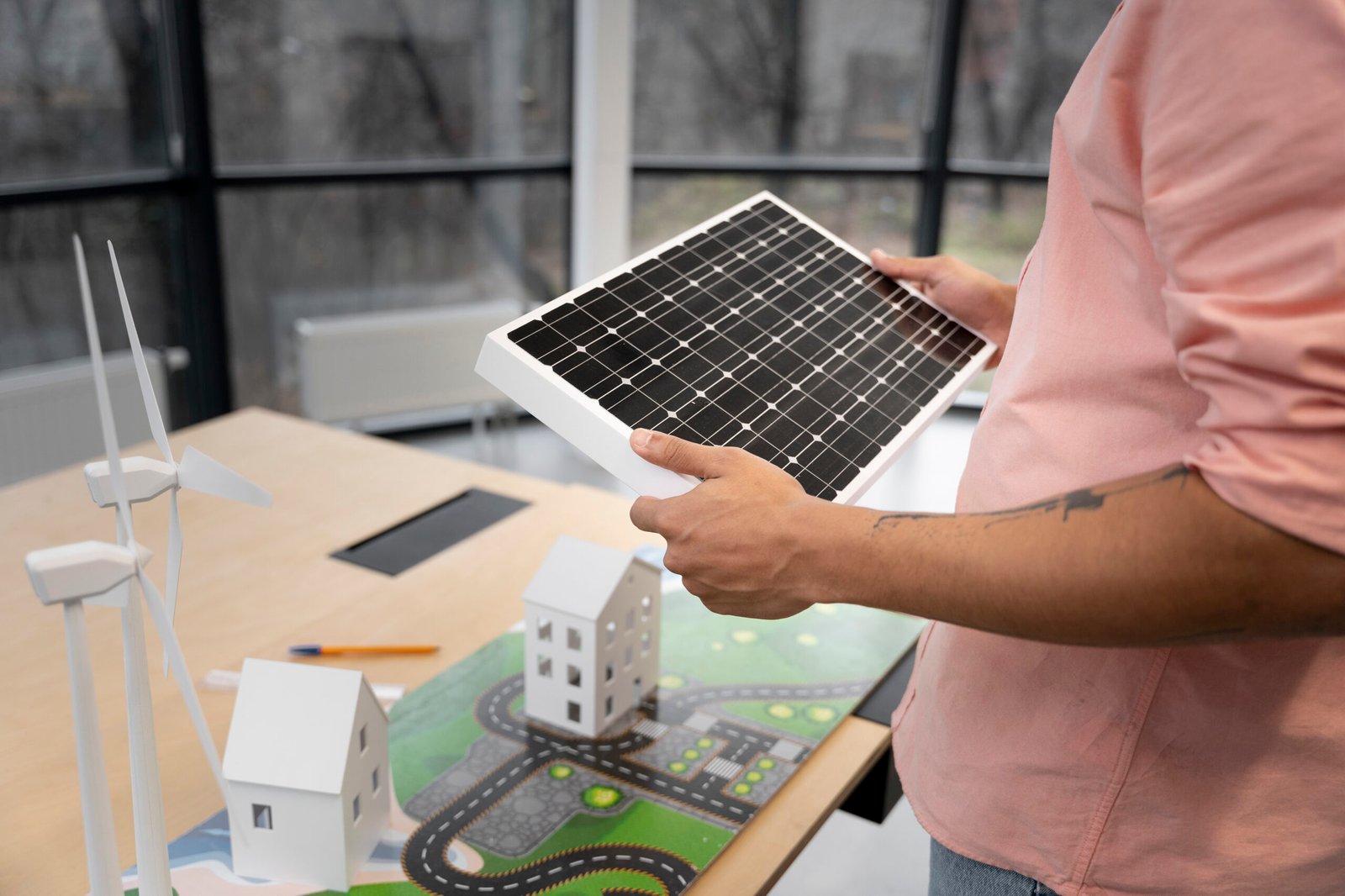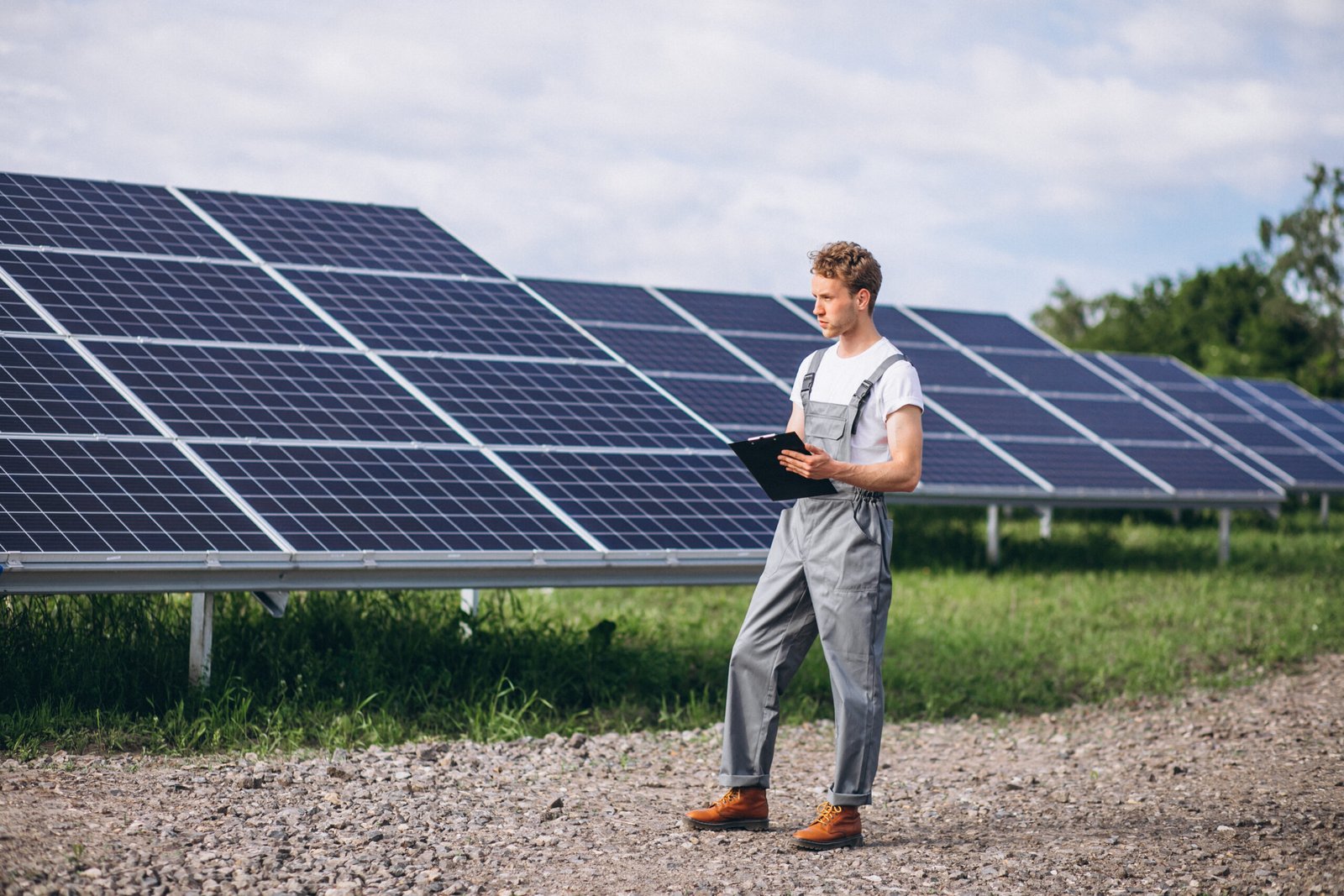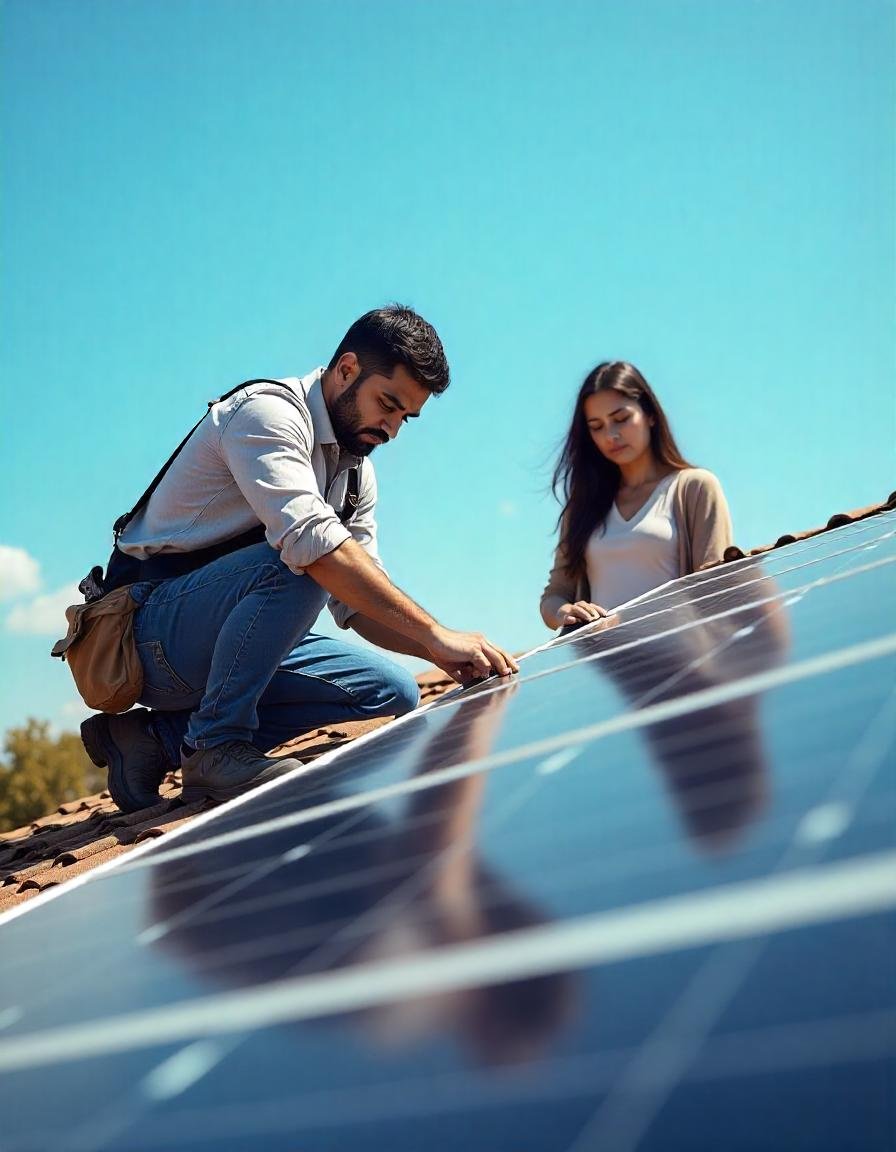In today’s rapidly evolving energy landscape, homeowners are looking for smarter, cleaner, and more cost-effective ways to power their lives. Rising electricity tariffs, frequent grid disruptions, and growing environmental concerns have made renewable energy a necessity rather than a luxury. Among all renewable options, a home solar panel system stands out as the most practical and scalable solution for residential properties.
Table of Contents
This comprehensive guide will help you understand everything about installing a home solar panel system — from how it works to system types, financial benefits, government incentives, maintenance, and long-term value. Whether you are planning to reduce electricity bills, increase property value, or transition to sustainable living, this blog will serve as your go-to resource.
What Is a Home Solar Panel System?
A home solar panel system is a photovoltaic (PV) energy configuration designed for residential use, transforming sunlight into electricity. The process begins with solar panels, typically mounted on rooftops, capturing sunlight and generating direct current (DC) electricity through the photovoltaic effect, where sunlight initiates a flow of electrons. An inverter then converts this DC electricity into alternating current (AC), which is suitable for household appliances and lighting.
The generated power can be utilized immediately, stored in batteries, or, in grid-connected systems, returned to the utility grid for credits via net metering. Home solar systems may vary, being grid-connected, off-grid, or hybrid, offering options dependent on their interaction with utility power and battery storage needs.
Key components of a home solar system include:
- Solar Panels (PV Modules): Capture sunlight and generate DC electricity.
- Solar Inverter: Converts DC to AC electricity for home use.
- Mounting Structure: Securely mounts the panels on the roof or ground.
- Net Meter: Monitors electricity exchanged with the grid.
- Battery Storage (Optional): Stores excess electricity for backup.
- Monitoring System: Enables real-time energy generation tracking.
By using a home solar panel system, homeowners can produce clean, renewable electricity, reduce utility costs, and minimize dependence on traditional power sources for long-term savings.
Why Homeowners Are Switching to Solar Energy
The shift toward solar energy is no longer a trend — it is a long-term movement driven by rising electricity costs, growing environmental awareness, and the desire for energy independence. A home solar panel system has become one of the most practical and financially rewarding upgrades a homeowner can make. Below is a detailed look at the major reasons behind this transition.
1. Rising Electricity Bills and Long-Term Cost Savings
Electricity prices are rising due to fuel costs, infrastructure improvements, and increased demand, posing a significant burden on households. Home solar panel systems offer a solution by allowing homeowners to generate their own electricity, significantly reducing reliance on the grid. Once operational, solar panels produce free electricity for over 25 years. Although there is an initial investment, the payback period is usually a few years, after which homeowners enjoy continued savings, making solar energy a dependable long-term financial investment.
2. Protection Against Future Tariff Hikes
Energy markets exhibit unpredictability, with utility rates generally on the rise, often experiencing annual increases. Generating your own electricity allows you to stabilize your energy expenses, safeguarding your household finances against abrupt tariff hikes and ensuring enhanced financial security in the long run.
3. Energy Independence and Control
A home solar panel system empowers homeowners by enabling them to generate their own clean energy, reducing reliance on utility providers. Hybrid or battery-backed systems allow for the storage of excess electricity for use during nighttime or outages. This independence is particularly beneficial in regions with unreliable grid service, as it ensures that homes can remain operational even during power interruptions.
4. Environmental Responsibility and Sustainability
Solar energy is a renewable and clean source of power, producing no greenhouse gas emissions during operation, unlike coal or gas-based electricity. Homeowners who switch to solar energy can significantly lower their carbon footprint and help create a cleaner environment. Installing a residential solar system not only reduces dependence on fossil fuels but also aids in the global fight against climate change. For families mindful of the environment, adopting solar technology represents a significant move towards sustainable living.
5. Increase in Property Value
Homes with solar systems are gaining appeal in the real estate market due to benefits like reduced electricity bills and improved energy efficiency. Research indicates that these solar-equipped properties tend to sell more quickly and at higher prices compared to those without solar systems, highlighting that a solar panel installation serves not only as an energy enhancement but also as a means to increase property value.
6. Government Incentives and Subsidies
Many governments encourage the adoption of residential solar energy by offering financial incentives such as subsidies, tax benefits, and net metering policies. These measures significantly lower installation costs, thereby enhancing accessibility to solar energy. Net metering policies enable homeowners to sell excess electricity back to the grid, earning credits that contribute to additional savings. As a result, financial support programs have broadened the appeal of solar energy, making it a feasible option for middle-income households rather than being limited to affluent homeowners.
7. Low Maintenance and Long Lifespan
Modern solar panels are designed for durability and optimal long-term performance, necessitating minimal maintenance, usually limited to periodic cleaning and routine inspections. These systems typically offer a 25-year performance warranty, which guarantees consistent energy production over many years. As a result, solar energy systems are considered a low-risk and stable investment.
8. Technological Advancements
Solar technology has experienced considerable advancement recently, characterized by the development of more efficient and durable panels that perform well in low-light conditions. Additionally, smart monitoring systems enable homeowners to monitor real-time performance via mobile applications. Furthermore, improvements in battery storage solutions provide enhanced backup capabilities and energy management, making contemporary home solar panel systems more efficient and user-friendly than previously.
9. Social and Lifestyle Influence
As sustainability gains global importance, an increasing number of homeowners regard solar energy as a key aspect of responsible living. This trend has led communities to adopt renewable energy practices, with solar installation often inspiring nearby residents to do the same. Solar power transcends its financial benefits; it embodies a mindset of progressive environmental consciousness and intelligent living.
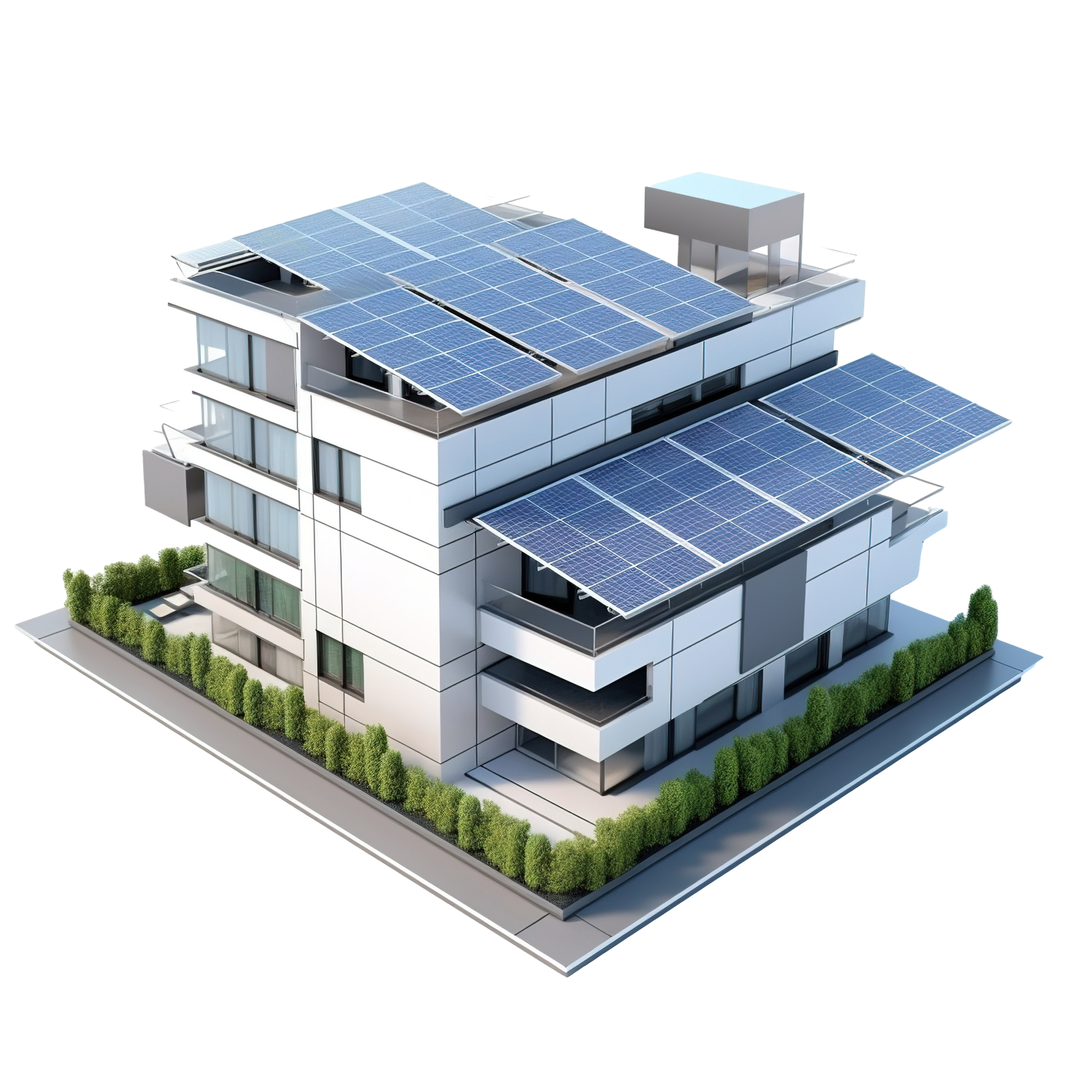
Types of Home Solar Panel Systems
Choosing the right system depends on your location, budget, and energy needs.
1. On-Grid Solar System
An on-grid home solar panel system is directly connected to the local electricity grid and represents a common, cost-effective solution for residential properties in urban and suburban settings. This system operates by generating electricity during the day via solar panels. The generated direct current (DC) is then converted to alternating current (AC) through an inverter for household usage. Home appliances utilize this power, while any surplus electricity can be exported to the grid through net metering. During the night or days with limited sunlight, electricity is sourced from the grid.
The system offers several advantages: it has lower installation costs (as batteries are unnecessary), provides a high return on investment, reduces electricity bills through net metering credits, and requires minimal maintenance. However, it has limitations, chiefly that it cannot supply power during grid outages due to safety regulations. The ideal candidates for this system are homes located in areas with a reliable electricity supply that seek to maximize savings with a lower initial investment.
2. Off-Grid Solar System
An off-grid home solar panel system functions independently of the utility grid, making it ideal for areas lacking reliable electricity. The system generates electricity through solar panels during the day, storing excess power in battery banks for use at night or during overcast conditions. Advantages include complete energy independence and reliability in remote settings without dependence on utility providers. However, it comes with limitations such as a higher initial cost for battery storage, the need for precise system sizing, and maintenance requirements for batteries which will eventually need replacement. This system is best suited for rural areas, farmhouses, and properties without grid connectivity.
3. Hybrid Solar System
A hybrid home solar panel system integrates features of both on-grid and off-grid systems by connecting to the grid and incorporating battery storage for backup power. It functions by generating electricity through solar panels for immediate use, storing excess energy in batteries, and allowing surplus power to be exported to the grid. In the event of power outages, the battery ensures a continuous supply of electricity.
The system offers several advantages, including providing backup power during outages, improved energy management, the flexibility to store or export electricity, and maximizing solar energy usage. However, it comes with limitations such as higher costs compared to traditional on-grid systems and a slightly more complex installation process. This hybrid system is best suited for homes in areas prone to frequent power cuts, appealing to homeowners seeking both savings and energy security.
How Much Solar Power Does Your Home Need?
Determining the right size of your home solar panel system is crucial for maximizing savings, efficiency, and long-term performance. Installing the correct capacity ensures that your system generates enough electricity to meet your household demand without overspending on unnecessary capacity. The ideal system size depends on several key factors, including your electricity consumption, rooftop space, sunlight availability, and future energy needs.
Let’s break it down step by step.
1. Analyze Your Monthly Electricity Consumption
The most accurate way to calculate your solar requirement is by checking your electricity bills. Look for your monthly energy usage in kilowatt-hours (kWh), also known as units.
For example:
- If your home consumes 600 units per month,
Daily usage = 600 ÷ 30 = 20 units per day
In most regions with good sunlight, 1 kW of solar panels generates approximately 4–5 units per day, or about 120–150 units per month.
So, to cover 600 units monthly:
600 ÷ 120 = 5 kW system (approx.)
This means a 5 kW home solar panel system would be suitable for your energy needs.
2. Match System Size to Daily Usage
Here’s a simplified guide:
- Up to 300 units/month → 2–3 kW system
- 300–600 units/month → 3–5 kW system
- 600–900 units/month → 5–7 kW system
- 900–1200 units/month → 8–10 kW system
- 1200+ units/month → 10 kW or higher
This estimation assumes average sunlight conditions and proper system installation.
3. Consider Available Rooftop Space
Your roof size plays a major role in deciding how much solar power you can install. Typically:
- 1 kW requires 80–100 sq. ft.
- 3 kW requires 240–300 sq. ft.
- 5 kW requires 400–500 sq. ft.
- 10 kW requires 800–1000 sq. ft.
The rooftop should be shadow-free and ideally south-facing (in India) for maximum efficiency.
4. Factor in Sunlight Availability
Solar generation depends on location and climate. Areas with higher solar radiation will generate more electricity per kW installed. If your area experiences frequent cloudy weather, slight adjustments in system sizing may be necessary.
5. Plan for Future Energy Needs
Your electricity consumption may increase in the future due to:
- Installing additional air conditioners
- Purchasing an electric vehicle
- Adding new appliances
- Expanding your home
It is often smart to slightly oversize your home solar panel system to accommodate future growth.
6. Decide on Backup Requirements
If you choose:
- On-grid system → Size based primarily on monthly consumption.
- Hybrid or off-grid system → System size must also account for battery storage capacity and backup duration requirements.
Backup planning is especially important in areas with frequent power cuts.
Understanding Solar Panel Technologies
When investing in a home solar panel system, understanding solar panel technologies is crucial for making the right decision. The type of technology used in your panels directly affects efficiency, durability, performance in different weather conditions, installation space requirements, and long-term financial returns. Modern solar panels use photovoltaic (PV) cells to convert sunlight into usable electricity, but the materials and design of these cells vary significantly.
Below is a detailed explanation of the major solar panel technologies used in residential installations.
1. Monocrystalline Solar Panels
Monocrystalline panels are one of the most popular choices for a home solar panel system due to their high efficiency and premium performance. These panels are manufactured from a single, pure silicon crystal, which allows better electron movement and improved energy conversion. With an efficiency range of 18% to 23%, a monocrystalline home solar panel delivers higher power output per square meter compared to other panel types. They are easily recognized by their uniform black appearance and sleek design.
A monocrystalline home solar panel performs exceptionally well in low-light and high-temperature conditions, making it ideal for residential rooftops in varied climates. Because of their high efficiency, fewer panels are required to generate the same amount of electricity, which is especially beneficial for homes with limited roof space. Although the upfront cost of this home solar panel option is slightly higher, the long lifespan of over 25 years and superior performance make it a strong long-term investment for homeowners seeking maximum returns.
2. Polycrystalline Solar Panels
Polycrystalline panels offer a more budget-friendly home solar panel solution while still delivering reliable performance. These panels are made by melting multiple silicon fragments together, resulting in slightly lower efficiency levels, typically ranging from 15% to 18%. They have a distinctive blue, speckled appearance that differentiates them from monocrystalline panels.
A polycrystalline home solar panel is known for its affordability and solid performance in sunny climates. While it may require slightly more rooftop space to generate the same electricity output as monocrystalline panels, it remains a practical option for homeowners with ample roof area. For those seeking a cost-effective home solar panel installation without compromising reliability, polycrystalline technology is often a suitable choice.
3. Bifacial Solar Panels
Bifacial panels represent an advanced home solar panel technology designed to capture sunlight from both the front and back surfaces. This unique feature allows the panel to absorb reflected sunlight from surfaces such as white rooftops, concrete floors, or nearby ground areas. As a result, a bifacial home solar panel system can generate 10% to 20% more energy than traditional single-sided panels.
These panels typically feature durable glass-on-glass construction, enhancing longevity and resistance to environmental stress. A bifacial home solar panel performs best when installed on elevated structures or in areas with reflective surfaces that maximize rear-side energy capture. Although the installation cost may be higher, the increased energy generation makes this home solar panel option attractive for homeowners aiming to optimize output and efficiency.
4. Thin-Film Solar Panels
Thin-film technology is a lightweight and flexible home solar panel alternative created by depositing photovoltaic materials onto substrates like glass, plastic, or metal. These panels have a lower efficiency range of around 10% to 13%, but they offer unique advantages in specific applications. Their flexibility makes them suitable for curved or unconventional surfaces where traditional panels may not fit.
While thin-film panels are less common in standard residential rooftop installations due to lower efficiency and higher space requirements, they can still serve as a specialized home solar panel solution in architectural or design-focused projects. For homeowners exploring innovative or custom installations, thin-film technology provides versatility, though it may not be the first choice for maximizing rooftop energy production.
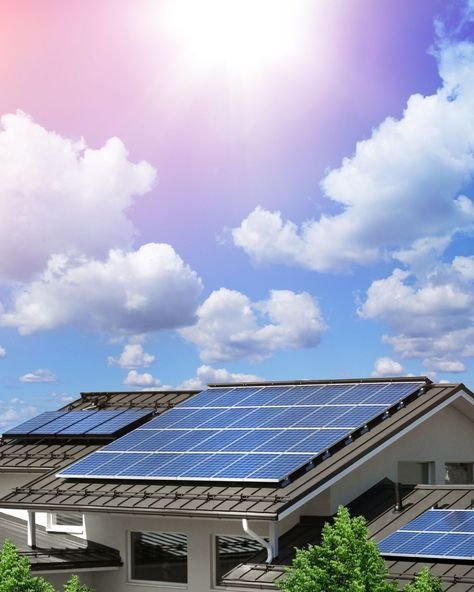
Government Policies and Incentives
Government policies and incentives play a crucial role in accelerating the adoption of home solar panel systems. Because solar installation requires an upfront investment, national and state governments introduce financial assistance programs, regulatory benefits, and tax incentives to make solar energy more accessible and affordable for homeowners. These policies not only reduce installation costs but also improve long-term savings and return on investment.
Below is a detailed explanation of the key government policies and incentives that support residential solar adoption.
1. Central Government Subsidy Programs
One of the main factors driving the growth of residential solar energy in India is direct financial subsidy support, particularly through the PM Surya Ghar Muft Bijli Yojana. This flagship scheme aims to enhance solar adoption among households by offering financial assistance for rooftop solar installations. Key features include the direct crediting of subsidies to homeowners’ bank accounts, motivating them to generate their own electricity and significantly reduce their electricity bills. Homeowners can receive substantial financial support based on system size, with higher subsidy percentages available for smaller systems (up to 3 kW).
The Ministry of New and Renewable Energy (MNRE) administers these benefits under the Rooftop Solar Programme, with a typical structure offering up to 40% subsidy for systems under 3 kW and around 20% for those between 3 kW and 10 kW, specifically for residential consumers. Adherence to approved technical standards for installation further enables significant cost reduction and shortens the payback period for solar installations.
2. State-Level Incentives
Many state governments provide additional incentives to encourage the adoption of rooftop solar systems, complementing central support. These benefits include capital subsidies, performance-based incentives, property tax rebates, waivers of inspection or approval charges, and expedited grid connection approvals. States such as Gujarat, Delhi, Rajasthan, Maharashtra, and Karnataka have implemented specific rooftop solar promotion policies, making solar energy more accessible and affordable for homeowners in these regions.
3. Net Metering Policies
Net metering is a key regulatory incentive for home solar panel systems. It operates by allowing homeowners to export surplus electricity generated from solar panels to the grid during the day. In return, the electricity board provides credits for this excess energy, which can be applied to reduce future electricity bills. This system enables homeowners to maximize their financial benefits from solar installations, leading to increased savings overall.
4. Reduced GST on Solar Equipment
The government has lowered the Goods and Services Tax (GST) on solar photovoltaic components, leading to several benefits including reduced system costs, lower installation expenses, and increased adoption of renewable energy technologies. This taxation reduction enhances affordability and amplifies demand for residential solar systems. To further support middle-income households in accessing solar energy, financial institutions offer various options such as low-interest solar loans, EMI-based payment plans, green energy financing schemes, and in certain regions, on-bill repayment options. Additionally, government-backed financing programs enable homeowners to install solar panel systems without requiring significant upfront capital.
6. Renewable Energy Targets and Policy Stability
Governments promote solar adoption by establishing long-term renewable energy targets and regulatory frameworks. These policies encourage utilities to adopt rooftop solar, provide clarity in regulations, enhance confidence among investors and consumers, and ensure support for residential solar markets. Additionally, the stability of these policies is crucial for fostering long-term growth within the solar sector.
7. Additional Incentives and Emerging Benefits
Some regions provide various incentives aimed at promoting clean energy adoption, including support for battery storage systems, solar-plus-storage programs, energy-efficient home incentives, and special schemes targeted at rural households. These initiatives are frequently updated by governments as technology evolves.
Cost of Installing a Home Solar Panel System
The cost of installing a home solar panel system depends on several factors, including system size (kW capacity), panel technology, inverter type, roof structure, installation complexity, and whether battery storage is included. While the upfront investment may seem significant, solar is a long-term asset that delivers consistent savings for 25 years or more.
Below is a complete and detailed breakdown to help you understand the real cost of installing a home solar panel system.
1. Average Installation Cost (India Overview)
In India, the pricing for residential solar systems is typically determined per kilowatt (kW), with the following cost ranges before applying subsidies: a 1 kW system costs between ₹50,000 and ₹75,000, a 3 kW system ranges from ₹1.5 lakh to ₹2.2 lakh, a 5 kW system costs between ₹2.5 lakh and ₹3.5 lakh, a 7 kW system is priced from ₹3.5 lakh to ₹4.8 lakh, and a 10 kW system ranges from ₹5 lakh to ₹7 lakh.
Generally, larger systems benefit from lower per-kilowatt pricing due to economies of scale. Furthermore, after accounting for government subsidies, the effective cost of these solar systems can be reduced by 20% to 40%, contingent upon individual eligibility and the geographic location of the installation.
2. What Is Included in the Total Cost?
The complete investment in a home solar panel system extends beyond just the solar panels themselves and typically involves several components:
- Solar Panels – These convert sunlight into electricity, with high-efficiency monocrystalline panels being more costly but requiring less roof space.
- Solar Inverter – This device changes the direct current (DC) electricity generated by the panels into alternating current (AC) power for home use. The inverter options include string inverters (most common), microinverters (for higher performance), and hybrid inverters (compatible with battery systems).
- Mounting Structure – Usually made of galvanized steel or aluminum, this structure secures the solar panels to the roof.
- Wiring & Electrical Accessories – This includes various DC and AC cables, isolators, junction boxes, safety devices, and earthing elements necessary for the installation.
- Installation & Labor – Professional installation is critical for ensuring the system operates efficiently, safely, and in accordance with warranty requirements.
- Net Meter & Grid Connection – For systems connected to the grid, setting up net metering and obtaining necessary approvals can incur additional costs.
- Battery Storage (Optional) – Incorporating batteries significantly increases overall costs, with options like lead-acid batteries being cheaper but shorter-lived, and lithium-ion batteries being more expensive yet offering longer life and higher efficiency. Battery costs can range from ₹80,000 to ₹2,00,000+, depending on their capacity.
3. Key Factors That Affect Installation Cost
Several factors affect the total cost of a home solar panel system. First, the system size plays a significant role: larger installations tend to be more expensive overall, but the cost per kW decreases. The type of solar panels also matters; while high-efficiency premium panels raise the initial investment, they can lead to better long-term returns.
The roof’s type and condition are critical as well: installing on a flat RCC roof is generally easier than on a sloped metal roof, which may need special mounting solutions. Older roofs might require reinforcement before installation. Additionally, location impacts labor costs and logistical factors that vary by city or state. Finally, including add-ons such as monitoring systems, batteries, hybrid inverters, or premium brand options can substantially raise the total cost.
4. Cost After Government Subsidy
Under central rooftop solar schemes and state incentives, smaller solar systems (up to 3 kW) can receive up to 40% subsidy, while systems between 3–10 kW get a lower percentage subsidy. Additionally, some regions offer extra state-level incentives. For example, a 3 kW system priced at ₹1.8 lakh can drop to around ₹1.2–₹1.4 lakh post-subsidy, depending on eligibility. These subsidies play a significant role in reducing the effective payback period for users.
5. Maintenance Cost
Home solar panel systems necessitate minimal upkeep. Maintenance tasks include cleaning the panels 2 to 4 times annually, and potentially replacing the inverter every 8 to 12 years. The annual maintenance costs are typically low in relation to the savings on electricity, making overall maintenance very affordable.
6. Return on Investment (ROI) & Payback Period
Most residential solar systems achieve a return on investment within 3 to 6 years, determined by factors such as electricity consumption and tariff rates. Once the payback period is completed, homeowners benefit from free electricity for over 20 years, leading to continued savings. Net metering enhances these financial benefits, while an increase in electricity prices further amplifies savings.
7. Long-Term Financial Value
Although the initial investment for a home solar panel system varies from ₹50,000 to ₹7 lakh based on its size, the long-term financial benefits are significantly greater. Over a projected lifespan of 25 years, a 5 kW system can generate savings amounting to several lakhs, positioning solar energy not only as an energy solution but also as a viable long-term financial investment.
Return on Investment (ROI)
Return on Investment (ROI) for a home solar panel system measures the financial benefits gained compared to the initial installation cost. It shows how quickly the system pays for itself and how much total savings it generates over its lifetime. When calculating ROI for a home solar panel setup, several factors are considered, including the net installation cost (after subsidies), yearly savings on electricity bills, earnings from net metering, system lifespan, and minimal maintenance expenses. Unlike traditional investments that earn interest, a home solar panel system reduces recurring electricity costs, which results in consistent and long-term financial gains.
In India, a properly designed home solar panel system typically achieves payback within 4 to 7 years. This relatively short payback period makes a home solar panel investment highly attractive for homeowners, especially since most systems operate efficiently for 25 years or more with minimal maintenance. For example, a 5 kW home solar panel system can generate approximately 18–22 units of electricity per day, leading to annual savings of around ₹50,000 to ₹70,000, depending on usage and tariff rates. With the support of government subsidies and net metering policies, many homeowners recover their home solar panel investment within 4 to 5 years, after which they enjoy nearly free electricity for the next 18 to 20 years.
To calculate the ROI of a home solar panel system, you first estimate the total annual savings from reduced electricity bills and net metering credits, then subtract the minor maintenance costs. The payback period is calculated by dividing the total installation cost (after subsidies) by the annual savings. For instance, if a home solar panel system costs ₹3,00,000 after incentives and generates savings of ₹60,000 per year, the estimated payback period would be about 5 years. Beyond that point, the savings become pure financial gain year after year.
When compared to traditional financial instruments such as fixed deposits or bonds, a home solar panel investment often performs exceptionally well. Although the returns come in the form of reduced utility expenses rather than interest payments, they provide stable and predictable financial benefits with minimal risk. In many cases, rooftop home solar panel systems in India deliver annualized ROI rates of approximately 15% to 25%, matching or even exceeding many conventional investment options while also promoting clean and sustainable energy usage.
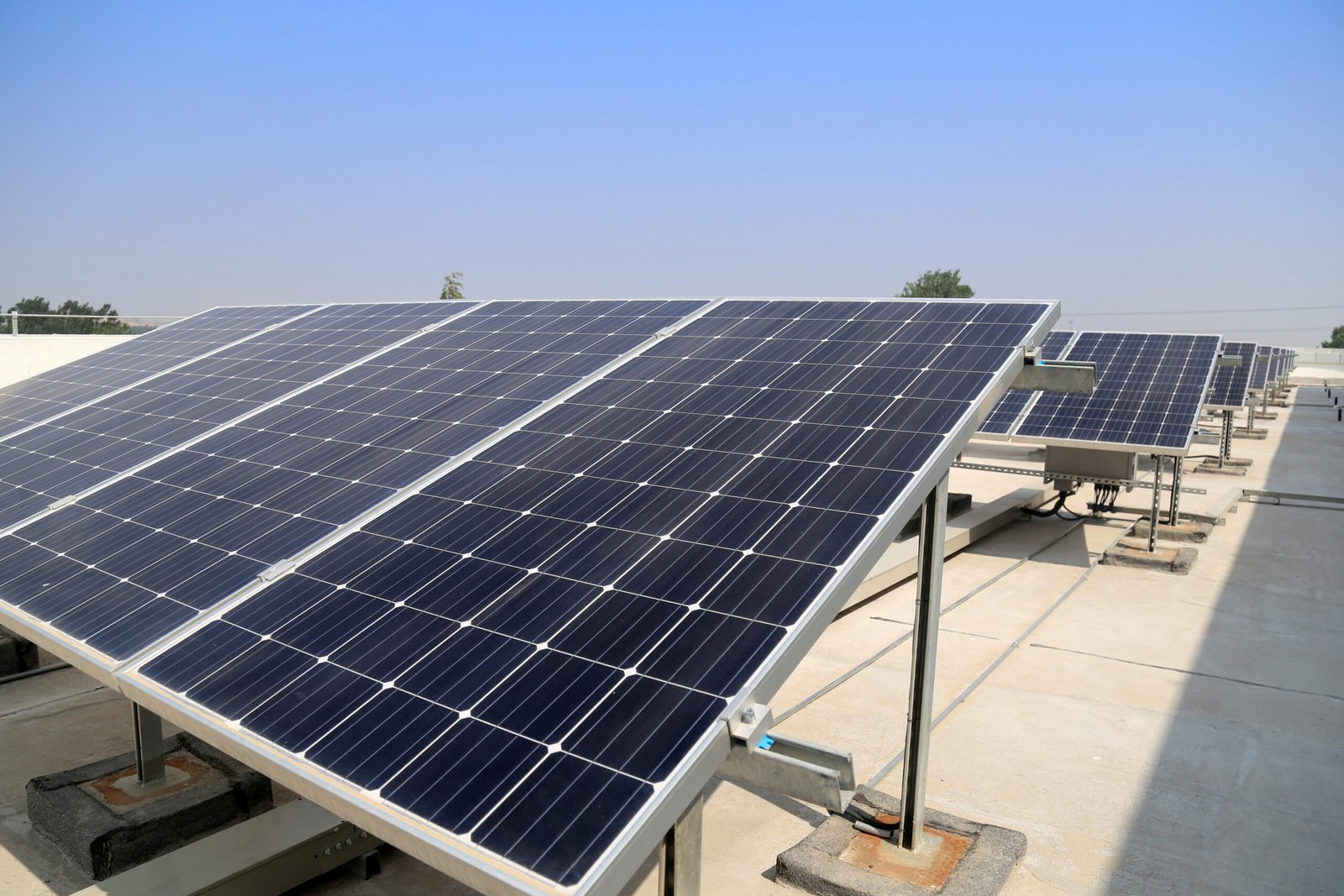
Installation Process Step-by-Step
Installing a home solar panel system is a carefully planned and professionally executed process that transforms your rooftop into a long-term source of clean, cost-saving electricity. From evaluating your energy needs to final system activation, every stage is important to ensure safety, efficiency, and maximum financial return.
Below is a complete and detailed explanation of how a residential solar installation typically works.
1. Energy Consumption Assessment and Feasibility Study
The process of setting up a solar panel system starts with an analysis of household electricity usage by installers, who review electricity bills from the past 6 to 12 months to assess average monthly power consumption (measured in kWh), seasonal usage variations, and current tariff rates. This evaluation is crucial for determining the appropriate system size. For instance, smaller homes may only need a 2 to 3 kW system, while larger homes with heavy appliances and air conditioning might require systems of 5 kW or more. Proper sizing is essential to ensure that the solar panel system provides maximum savings without incurring unnecessary costs.
2. Site Survey and Roof Evaluation
A technical team conducts a comprehensive site inspection at your home, which consists of several critical assessments. These include measuring the available shadow-free roof space, checking the structural condition and strength of the roof, assessing its orientation and tilt angle, and identifying potential shading obstacles such as trees, water tanks, or nearby buildings. In India, south-facing roofs are generally regarded as optimal for solar exposure. Additionally, the installers verify that the roof can safely accommodate the mounting structure and solar panels for a duration of 20–25 years.
3. Customized System Design and Engineering
Based on the site survey and energy analysis, a customized system design is developed that encompasses several crucial components: the selection of the number and type of solar panels, which can include monocrystalline or polycrystalline varieties; the choice of inverter, with options like string inverters, hybrid inverters, or microinverters; the layout of the mounting structure; the routing of cables along with safety mechanisms; and optionally, provisions for battery storage to create backup systems. The primary objective of this design is to enhance energy production while ensuring safety and long-term reliability of the system.
4. Documentation, Approvals, and Net Metering Application
Before installing a solar panel system, it is essential to obtain the necessary approvals from the local electricity distribution company (DISCOM). This process includes several key steps: submitting system design documents, applying for net metering, filing for subsidies if eligible, and completing regulatory compliance paperwork. Net metering allows homeowners to export excess solar energy generated by their system back to the grid in exchange for bill credits. Approval timelines vary by state, typically taking a few weeks.
5. Installation of Mounting Structure
Once the necessary approvals are obtained, the physical installation process commences. Initially, the roof surface undergoes cleaning and preparation. Following this, mounting structures, which are usually made of aluminum or galvanized steel, are securely fixed in place. The tilt angle of the structures is then adjusted to maximize sunlight capture. Additionally, waterproof sealing is applied around any drilled points to prevent water ingress. A correctly installed mounting structure is crucial, as it guarantees durability against wind loads, heavy rainfall, and prolonged exposure to environmental conditions.
6. Solar Panel Installation
After securing the mounting frames, solar panels are meticulously installed on the structure. Installers focus on several key aspects: ensuring the panels are accurately aligned for optimal sunlight exposure, fastening them securely using clamps and bolts, and maintaining proper spacing to allow for adequate ventilation and easy maintenance access. Once these steps are completed, the solar panels are prepared to start generating solar energy.
7. Electrical Wiring and Inverter Setup
This document outlines essential steps in the installation of a solar power system. It identifies the connection of DC wiring from solar panels to the inverter, which is placed near the main electrical panel. Furthermore, AC wiring connects the inverter’s output to the household distribution board. The text emphasizes the importance of proper earthing and surge protection devices, and notes that the inverter plays a key role by converting the direct current (DC) generated by the solar panels into alternating current (AC) for household use. All connections are asserted to comply with established electrical safety standards.
8. Net Meter Installation and Utility Inspection
After the internal installation is completed, the local electricity authority conducts an inspection to ensure proper wiring and earthing, compliance with safety standards, and that the system capacity is correct. Upon approval, the traditional electricity meter is replaced with a bidirectional net meter, which measures both imported and exported electricity.
9. System Testing and Commissioning
Before a solar panel system is activated, it undergoes several critical processes: performance testing to check voltage and current, inverter configuration, and safety verification. Once all these aspects are confirmed, the system is officially commissioned and begins to generate electricity. Subsequently, the solar panel system starts to reduce electricity bills for the home.
10. Monitoring and Ongoing Maintenance
Modern solar systems are equipped with digital monitoring tools or mobile applications, enabling homeowners to monitor key aspects such as daily and monthly energy production, performance efficiency, and estimated savings. Maintenance needs for these systems are minimal, consisting primarily of cleaning the solar panels every few weeks to eliminate dust, conducting an annual professional inspection, and occasional servicing of the inverter if necessary. With appropriate care, these residential solar systems are designed to have a lifespan of 25 years or more.
Maintenance of Home Solar Panel Systems
Maintaining a home solar panel system is simple, cost-effective, and essential for ensuring long-term efficiency and consistent savings. While solar systems are designed to operate with minimal intervention, regular maintenance helps maximize power generation, extend equipment lifespan, and protect your overall investment.
A properly maintained solar system can operate efficiently for 25 years or more, delivering reliable clean energy and strong financial returns.
1. Regular Cleaning of Solar Panels
Cleaning is essential for maintaining a home solar panel system. It is recommended to clean panels every 2–4 weeks in dusty areas, every 1–2 months in moderate environments, and after heavy storms or construction. While rain can help remove light dust, it may not suffice for thorough cleaning. Proper cleaning involves using clean water with a soft sponge or microfiber cloth, avoiding harsh detergents or chemical cleaners, and performing the task during cooler times of the day. High-pressure water jets should never be used, and for steep or hard-to-reach roofs, hiring professional cleaning services is advised for safety and effectiveness.
2. Monitoring System Performance
Most modern solar systems are equipped with monitoring apps or inverter display systems that provide crucial information, including daily energy production, monthly generation reports, and real-time system status. Regularly reviewing these metrics is essential for identifying abrupt declines in performance, which could be due to factors like dirt accumulation, shading issues, wiring faults, or inverter malfunctions. Effective monitoring facilitates early detection of such problems, thereby preventing significant energy loss in the long term.
3. Inverter Maintenance
The inverter is essential to a solar system as it converts DC electricity from solar panels into AC power for residential use. While solar panels have a lifespan of over 25 years, inverters generally last between 8 to 12 years. To ensure optimal inverter health, it is important to install it in a cool, ventilated area, maintain cleanliness around it, monitor for warning lights or error messages, and schedule periodic inspections. Replacement of the inverter may be necessary once during the system’s lifetime.
4. Electrical and Safety Inspection
Annual professional inspections are strongly advised, wherein a trained technician examines several key components: cable connections and insulation, the integrity of the earthing system, surge protection devices, circuit breakers, and safety switches. Addressing loose wiring or minor faults is crucial, as these issues can diminish efficiency and pose safety hazards. Regular inspections help maintain safe operations and ensure adherence to electrical standards.
5. Mounting Structure and Roof Checks
The mounting structure holds solar panels securely for a long time, but extreme weather—like high winds, heavy rain, and intense heat—can compromise the integrity of bolts and frames. Regular inspections should focus on identifying loose fasteners, rust formation, structural damage, and water leakage around drilled areas of the roof. Timely intervention on these issues is crucial to prevent long-term damage.
6. Battery Maintenance (If Installed)
If your system includes battery storage, it is crucial to monitor charge cycles regularly and avoid frequent deep discharging to prolong battery life. Proper ventilation must be maintained, and it is essential to follow the manufacturer’s maintenance guidelines. Batteries require more attention than solar panels and should be serviced periodically to ensure optimal performance.
7. Preventive vs Corrective Maintenance
Maintenance can be classified into two primary types: Preventive Maintenance and Corrective Maintenance. Preventive Maintenance includes scheduled cleaning, routine inspections, monitoring system output, and tightening connections, all aimed at preventing issues before they arise. In contrast, Corrective Maintenance involves actions such as repairing damaged panels, fixing wiring faults, and replacing inverter components. It is noted that Preventive Maintenance is generally more cost-effective and efficient compared to Corrective Maintenance.
8. Annual Maintenance Cost
One of the primary benefits of solar energy is its low operating cost, with typical annual maintenance expenses ranging from ₹2,000 to ₹5,000, depending on the system size and frequency of service. When compared to the substantial savings on electricity bills each year, these maintenance costs are relatively minimal.
Future of Residential Solar Energy
The future of the home solar panel industry is becoming more dynamic, intelligent, and widely adopted than ever before. As electricity tariffs continue to increase and sustainability becomes a priority, the demand for home solar panel systems is rising rapidly. A modern home solar panel setup is no longer just an alternative energy option; it is evolving into a primary power source for residential properties. With continuous improvements in technology, each new generation of home solar panel modules delivers higher efficiency, better durability, and improved performance even in limited rooftop spaces.
Advancements in solar cell technologies such as TOPCon, HJT, and next-generation materials are expected to make every home solar panel system more powerful and cost-effective. These innovations allow a home solar panel installation to generate more electricity from the same roof area, which is especially valuable in urban homes. At the same time, the integration of battery storage with a home solar panel system is becoming increasingly common, enabling homeowners to store excess power for nighttime use and during grid outages.
Smart technology is also reshaping the future of the home solar panel market. Modern monitoring systems allow homeowners to track the performance of their home solar panel system in real time, optimize energy usage, and maximize savings through intelligent automation. With AI-based energy management, a home solar panel setup can adapt to consumption patterns and improve overall efficiency.
Government incentives and supportive renewable energy policies are further accelerating the adoption of home solar panel systems. Subsidies, net metering programs, and simplified approval processes are making home solar panel installations more accessible and financially attractive. As costs continue to decline and technology continues to advance, the home solar panel system is expected to become a standard feature in modern homes. Ultimately, investing in a home solar panel solution represents not just energy savings, but a future-focused commitment to sustainability, independence, and long-term financial growth.
Conclusion
Choosing a home solar panel system is more than just upgrading your energy source — it is an investment in long-term savings, sustainability, and energy independence. Throughout this blog, we’ve explored how a home solar panel works, the different system types available, installation steps, government incentives, maintenance requirements, and the return on investment it can deliver. Together, these insights show that switching to a home solar panel solution is both a financially smart and environmentally responsible decision.
With electricity prices steadily increasing, a home solar panel system allows you to generate your own clean power, reduce monthly utility bills, and protect yourself from future tariff hikes. Modern technology, improved efficiency, and integrated battery storage options make every home solar panel installation more reliable and performance-driven than ever before.
Now is the ideal time to take control of your energy future. If you’re ready to lower your energy costs and add long-term value to your property, connect with our experts today for a personalized consultation. Let us help you design the perfect home solar panel system tailored to your needs and start your journey toward clean, cost-effective energy.
